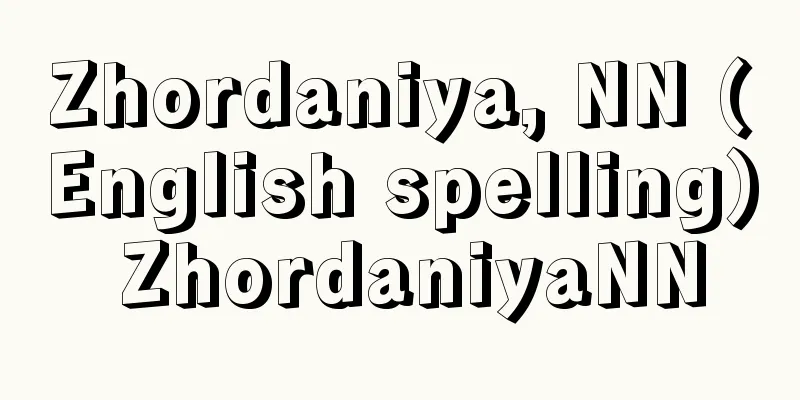Great Prince - Okimi

|
〘Noun〙 (also "Ogimi")① A respectful term for the Emperor. ※Kojiki (712), Vol. 2, folk song "Even if I live alone on the single reed of Hatta, If I hear that Ohokimi is good, Even if I live alone"② A respectful term for princes, kings, princesses, and other descendants of the Emperor. ※Kojiki (712), Vol. 2, folk song "The high-shining sun god rests peacefully, my Ohokimi "③ A respectful term used especially for kings who were not proclaimed princes or registered as subjects. A counter term to calling a prince or princess "miko". ※Engishiki (927) Norito, June 30th Great Purification (Kujo Family Main Instruction) "The princes , kings , ministers, and hundreds of officials gathered together, all of you are declaring , 'Listen to me! '" ④ The supreme ruler. The great king. ※Bussokuseki (Poem of the Buddha's Footprint) (around 753) "This body, like the light of thunder, is always with the mortal Oho-kimi. Isn't it fearful?" ⑤ Used to respect a person of high rank. ※Saibaraku (late 7th century - 8th century) My family "My family's curtains are hanging down , so please bring Oho-kimi to be my son-in-law." ⑥ Used to respect the lord. ※Kokunodai Senki (1575) "Ohogimi Yoshiaki and his younger brother Motoyori and Wakagimi" [Eloquence] (1) ① is a title of respect for the Emperor, the highest rank and head of state, and is not a name of rank, but is a title of respect for the Emperor, the highest rank and head of state, by adding the honorific "oho" to the honorific "kimi" for the leader of a clan or group. It is used in kanji as "king" or "great king," and honorifics for male and female members of the imperial family such as "king" and "princess" are also read as "ohokimi." The example of ④, "Ohokimi of Death" in "Butsokusekika" is read as the Chinese word "great king." (2) From the Middle Ages onwards, kings were called “Ookimi” in contrast to imperial princes (miko) (as in ③), and the term came to be used broadly to refer to people of high status as well (as in ⑤ and ⑥). Tai-kun [Big Prince]Ooigi miohoi [Great Prince]Source: The Selected Edition of the Japanese Language Dictionary About the Selected Edition of the Japanese Language Dictionary Information |
|
〘名〙 (「おおぎみ」とも)① 天皇を尊敬していう。※古事記(712)下・歌謡「八田の一本菅(ひともとすげ)は 独り居りとも 意富岐彌(オホキミ)し よしと聞こさば 独り居りとも」② 親王、王、王女など、天皇の子孫を尊敬していう。※古事記(712)中・歌謡「たか光る ひのみこ やすみしし わが意富岐美(オホキミ)」③ 特に、親王宣下もなく臣籍にもはいらない諸王を尊敬していう。親王を「みこ」というのに対する語。※延喜式(927)祝詞・六月晦大祓(九条家本訓)「集侍(うこなはりはべ)る親王(みこたち)・諸王(大君達)・諸臣(まち君達)・百の官人達、諸聞食(ききたまへよ)と宣(のたま)ふ」④ 最上の支配者。大王。※仏足石歌(753頃)「雷の 光の如き これの身は 死の 於保岐美(オホキミ) 常に偶へり 畏づべからずや」⑤ 身分のある人を尊敬していう。※催馬楽(7C後‐8C)我家「我家(わいへ)は 帷帳(とばりちゃう)も 垂れたるを 於保支美(オホキミ)来ませ 聟にせむ」⑥ 主君を尊敬していう。※国府台戦記(1575)「おほぎみ 義明をはじめ奉り、御舎弟元頼、わかぎみ両三人」[語誌](1)①は氏族や集団の統率者に対する敬称「きみ」に美称の「おほ」を冠して、最上の身分、国家の元首たる天皇に対する敬称としたもので、身分の名称ではない。漢字として「王・大王」などをあて、皇族の男女の敬称「王、王女」等も「おほきみ」と読まれる。④の挙例「仏足石歌」の「死のおほきみ」は、漢語の「大王」の訓である。 (2)中古以降は③のように、親王(みこ)に対して諸王を「おほきみ」といい、また⑤⑥のように、身分のある人をも広く指して言うようになった。 たい‐くん【大君】おおい‐ぎみ おほい‥【大君】出典 精選版 日本国語大辞典精選版 日本国語大辞典について 情報 |
>>: Large districts and small districts
Recommend
Prescription - Houzai
〘 noun 〙 The act of compounding medicines. Also, t...
Syndactyly - Syndactyly
What is the disease? Hand development progresses ...
Will-Erich Peuckert
1895‐1969 German folklorist. Born in Silesia, he f...
metacarpus
…These bones do not ossify simultaneously but seq...
Urology - Urology
It is a branch of clinical medicine and is a rela...
Anne Louis Girodet-Trioson
1767‐1824 French Neoclassical painter. Born in Mon...
A'nyêmaqên [Mountain Range] (English spelling)
Located in the southeastern part of Qinghai Provin...
Jamdat Nasr Culture - Jamdat Nasr Culture
A culture from around 3200 to 3100 BCE, characteri...
Dam (English spelling)
A structure that blocks rivers or valleys and stor...
Volta effect
...the potential difference that occurs between t...
Hylidae
...General term for frogs of the Hylidae family, ...
highway robber
...It is also suggestive that in ancient times th...
Alexander's Ragtime Band
…From an early age, he became a traveling enterta...
European law - Ouhou
…Most of the calligraphy in Korea from Unified Si...
Dactylostalix ringens - Dactylostalix ringens
A small perennial plant of the orchid family. It i...









